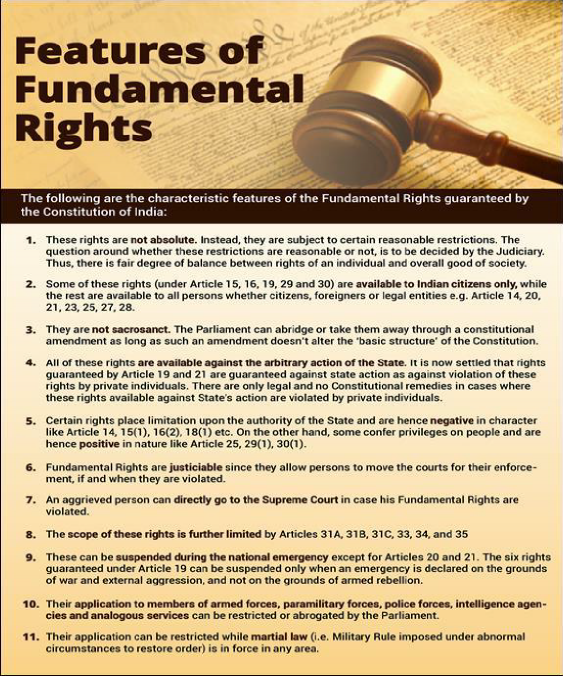4. Evolution of Fundamental Rights
The inspiration for incorporating fundamental rights into the Constitution was the result of a long struggle for freedom and learning from the experiences of world’s leading democracies particularly from the Constitution of USA i.e. the Bill of Rights.
In 1928, a series of All Party Conferences headed by Motilal Nehru drafted a constitutional scheme, called the Nehru Report. It called for establishing India into a Parliamentary democracy and giving protection to minorities.
The famous resolution of 1931 Karachi Session further committed itself to issues of individual rights and liberties. This included fundamental civil rights, socio-economic rights like ensuring minimum wages and abolition of untouchability and serfdom.
However, the Simon Commission and the Joint Parliamentary Committee, which were responsible for the Government of India Act, 1935, had rejected the idea of enacting declarations of fundamental rights on the ground that “abstract declarations are useless, unless there exist the will and the means to make them effective”. But nationalist opinion, since the time of the Nehru Report, was in favour of a Bill of Rights because the experience gathered from the British regime was that a subservient Legislature might serve as a handmaid to the Executive in committing inroads upon individual liberty.
Regardless of the British opinion, therefore, the makers of our Constitution adopted Fundamental Rights to safeguard individual liberty and also for ensuring (together with the Directive Principles) social, economic and political justice for every member of the community. The Constituent Assembly was also inspired by the Bill of Rights of USA and UK as well as France’s Declaration of the Rights of Man.

